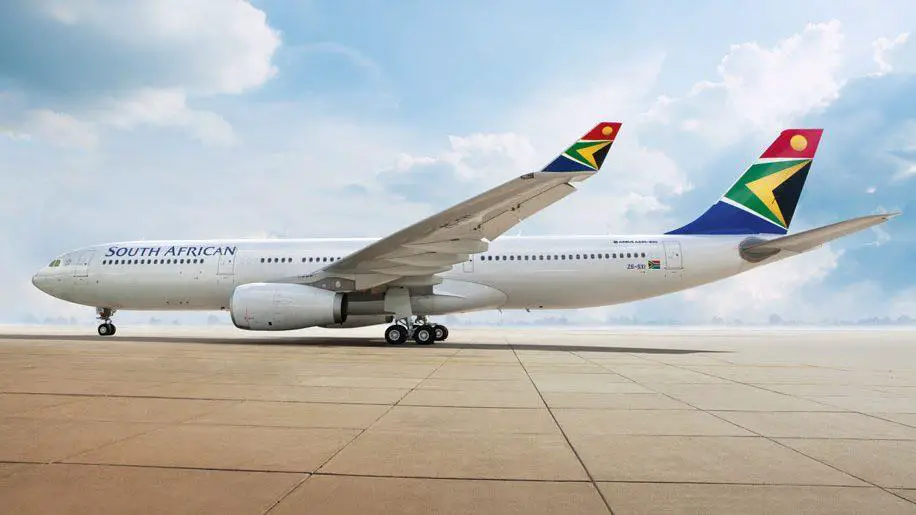The novel coronavirus pandemic (COVID-19) has brought the skies down, even the aviation industry is not safe from the virus wrath. In this case, the African aviation industry is vulnerable, as the international body predicted earlier that, the pandemic would hurt the sector hard, as carriers.
According to information from Bloomberg, Africa’s biggest carriers, Ethiopian Airlines, South African Airways and Kenya Airways are among national airlines staring at mounting losses and the destruction of growth plans put in place before the COVID-19 outbreak.
The International Air Transport Association (IATA) said last week, African carriers may lose $4 billion in 2020 revenue as demand for travel around the continent grinds to a halt.
All three of Africa’s biggest carriers have to find a resolution to ensure amicable solutions reach as carriers “will, in some shape or form, have to enter into conversations with their respective governments about bailouts,” Mike Mabasa, chairman of the Air Services Licensing Council in South Africa, told Bloomberg by phone.
On the side of the aisle, the Ethiopian Airlines Chief Executive Officer Tewolde Gebremariam said Tuesday that his airline won’t be able to access state help, that may change if demand for travel doesn’t return quickly.
However, last month, IATA doubled its estimated impact from the virus to at least $63 billion to about $ 113 billion should the disease prolong its spread across the globe.
The industry body projected loss already looks optimistic after Ethiopian — the continent’s only profitable airline — said losses from January through April reached $550 million.
Further, IATA’s estimate for the carrier was $300 million for the year as a whole. This could delay or kill a plan to start building a new $5 billion airport slated to have a bigger capacity than London Heathrow.
East Africa’s competitive carrier—Rwanda Air, and Air Mauritius are among airlines that have suspended flights to China. Morocco has suspended all international flights to and from its territory “until further notice” and Kenya Airways also suspended flights to countries affected by the virus.
South African Airways (which cancelled up to 162 international and regional flights soon after the virus went extreme) was put into bankruptcy protection by the government even before the virus was detected in China late last year.
The national carrier only had enough cash to last until this month, based on the administrator’s most recent public comments, and its only ongoing passenger flights are chartered by governments such as Germany’s to bring home national citizens.
The Kenyan government, which owns just under 50 per cent of Kenya Airways, has weighed a full nationalization of the carrier to boost its balance sheet and remains committed to that plan, Transport secretary James Macharia said on Tuesday. The airline has lost money since 2013 and asked the government for a cash bailout to get it through the next six months.
According to an economic analyst based in Nigeria, one of the reasons Africa’s aviation industry is hit hard by the spread of the virus is its large trade and travel relations with China, where the outbreak started.
According to a report by QZ Africa, Air flight between China and Africa has increased by 630 per cent in the last decade, with airlines like Ethiopia air flying in about 1,500 passengers from China every day.
However, Bloomberg noted that, yet none of the three governments is in an ideal position to bail out the carriers.
At the moment, South Africa’s economy is swimming in a second recession and the National Treasury has long made clear that the country’s debt-laden state-owned power utility is a bigger priority.
Ethiopia received $5 billion from the International Monetary Fund (IMF) and the World Bank last year to carry out a strict set of economic reforms as it tries to attract more foreign capital and create jobs.
The IMF urged Kenya in November to be wary of piling on more debt at a time the country is struggling to fund manufacturing, housing, farming and health-care projects.
“The treasury is cash-strapped. They need money to come in sooner, but the government has many demands currently,” said Churchill Ogutu, head of research at Nairobi-based Genghis Capital.
At risk is air connectivity to cities all over the continent that are not served by the likes of Emirates and Etihad, which have expanded to major African hubs such as Johannesburg, Nairobi and Lagos.
Rwanda hasn’t given updates on a plan to sell a 49 per cent stake in the national carrier to Qatar Airways.
Uganda, whose carrier resumed flights in August after almost two decades, hasn’t released post-virus information on expansion plans that include the planned delivery of two wide-body jets from Airbus SE this year.
Also, Joachim Vermooten, an independent aviation analyst in South Africa, highlighted that the path to recovery for African carriers is complicated by how long lockdowns and border closures could last.
According to Abderahmane Berthe, Secretary-General of the African Airlines Association, without state help, the continent’s aviation industry as a whole has about three months worth of liquidity.
READ:Covid-19 coronavirus could ground most African airlines
